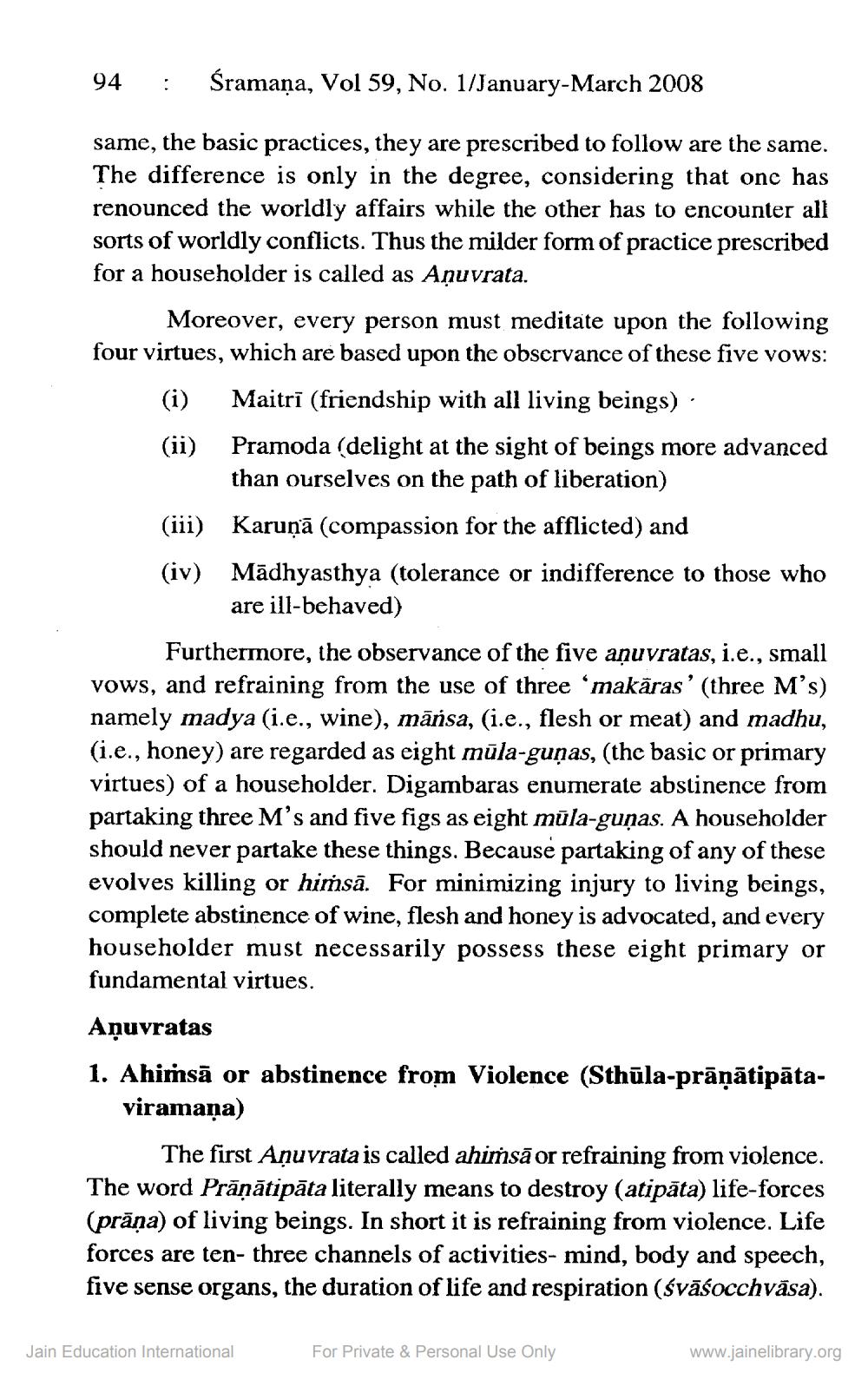________________
Śramaṇa, Vol 59, No. 1/January-March 2008
same, the basic practices, they are prescribed to follow are the same. The difference is only in the degree, considering that one has renounced the worldly affairs while the other has to encounter all sorts of worldly conflicts. Thus the milder form of practice prescribed for a householder is called as Aṇuvrata.
94 :
Moreover, every person must meditate upon the following four virtues, which are based upon the observance of these five vows: Maitri (friendship with all living beings)
(i)
(ii)
Pramoda (delight at the sight of beings more advanced than ourselves on the path of liberation)
(iii) Karuņā (compassion for the afflicted) and
(iv) Madhyasthya (tolerance or indifference to those who are ill-behaved)
Furthermore, the observance of the five aṇuvratas, i.e., small vows, and refraining from the use of three 'makāras' (three M's) namely madya (i.e., wine), mānsa, (i.e., flesh or meat) and madhu, (i.e., honey) are regarded as eight mūla-guņas, (the basic or primary virtues) of a householder. Digambaras enumerate abstinence from partaking three M's and five figs as eight mula-guņas. A householder should never partake these things. Because partaking of any of these evolves killing or himsa. For minimizing injury to living beings, complete abstinence of wine, flesh and honey is advocated, and every householder must necessarily possess these eight primary or fundamental virtues.
Anuvratas
1. Ahimsa or abstinence from Violence (Sthūla-prāṇātipātaviramana)
The first Aṇuvrata is called ahimsā or refraining from violence. The word Prāṇātipāta literally means to destroy (atipāta) life-forces (prāṇa) of living beings. In short it is refraining from violence. Life forces are ten- three channels of activities- mind, body and speech, five sense organs, the duration of life and respiration (śvāśocchvāsa).
Jain Education International
For Private & Personal Use Only
www.jainelibrary.org




